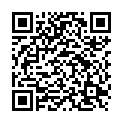|
|
|
| Module code: BAIBA-650 |
|
|
8V (8 hours per week) |
|
10 |
| Semester: 6 |
| Mandatory course: yes |
Language of instruction:
English |
Assessment:
Written examination
[updated 20.03.2010]
|
BAIBA-650 (P420-0481) International Business, Bachelor, ASPO 01.10.2008
, semester 6, mandatory course
|
120 class hours (= 90 clock hours) over a 15-week period.
The total student study time is 300 hours (equivalent to 10 ECTS credits).
There are therefore 210 hours available for class preparation and follow-up work and exam preparation.
|
Recommended prerequisites (modules):
BAIBA-490 Culture & Civilisation
BAIBA-520 International Marketing
BAIBA-521
[updated 10.11.2011]
|
Recommended as prerequisite for:
|
Module coordinator:
Prof. Dr. Matthias Gröhl |
Lecturer:
Prof. Dr. Stefanie Jensen
N.N.
[updated 10.11.2011]
|
Learning outcomes:
Strategic management:
- Classification of analysis and planning tools
- Application of different strategy types to specific problems faced by internationally active companies
International locational policies:
- Appraisal of sites from a business economics viewpoint and, particularly, in terms of corporate policy
[updated 20.03.2010]
|
Module content:
Strategic management:
- Strategy types: Growth strategies, resource distribution strategies, - stagnation strategies, etc.
- Strategy formulation and strategy implementation processes
- Market orientation of management subsystems
International locational policies:
- Locational factors
- Location theory
- International comparison of economic locations
[updated 20.03.2010]
|
Teaching methods/Media:
- Lecture and discussions
- Group work and presentation of results
- Case studies
[updated 20.03.2010]
|
Recommended or required reading:
- Becker (1998), Marketing-Konzeptionen
- Dülfer (1999), Internationales Management
- Meffert/Bolz (1998), Internationales Marketing-Management
- Maier/Tödtling (1995), Regional- und Stadtökonomik, Standorttheorie und Raumstruktur
- Schätzl (1998), Wirtschaftsgeographie 1.Theorie
[updated 20.03.2010]
|


